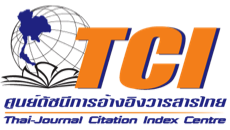Social Media and New Environmental Movements for Social Sanction in Thailand
Keywords:
New Environmental Movements, Social Media, Social Sanction, Dialectic, FacebookAbstract
The objective of this research is to study the formation, dynamics, impacts, patterns, and methods of social sanction on online media and public sphere of each New Environmental Movement consisting of Mae Wong Dam, Nakhon Sawan Province, Pichit Gold Mine, and Krabi coal-fired power plant. The study results reveal 3 findings. First of all, this study furthers the previous study of Sangsit Piriyarangsan (2015) on the social sanction. That work does not clearly indicate that which social media is important in the movement. This research finds that the most important tool of modern technology used in the new environmental movement for social sanction in Thailand which can generate the big change and can create the impacts on the society most is Facebook. Secondly, this research finds that the “3 forms of interaction in Thailand” consist of (1) Interaction between the new environmental movement, online media, and social sanction, (2) Interaction between social media and the dynamic of dispute in the dimension of power structure, and (3) Interaction between new environmental movement and online media in the viewpoint of politic economics on the power relations. It is the relation which is not defined in any dimension and has the complicated features with the dynamic and disagreement. Thirdly, this research proposes the new idea by calling “these 3 forms of interactions” as “the concept on the trilogy of power interaction of the power of online media and the new environmental movement for social sanction in Thailand.”
Downloads












.png)


